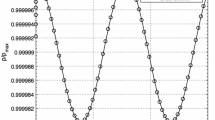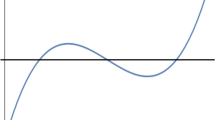Abstract
I DO not recollect that in Prof. Karl Pearson's recent memoirs embodying the results of tests on jelly models of dams he asserted that the distribution of stresses due to the water pressure on and the weight of a dam is entirely different in a thin slab cut from the dam from the distribution in the actual dam. In fact, Prof. Pearson used many such model slabs in an endeavour to ascertain experimentally certain stress distributions in actual dams. Prof. Pearson will doubtless be able to reply to criticisms from engineers or others regarding any statements he has made in this connection, either in his published memoirs or elsewhere: it is difficult to follow Mr. Martin's arguments (p. 198) at all points, more particularly with respect to the effects of the cancellation forces ŷ = F(xz).
This is a preview of subscription content, access via your institution
Access options
Subscribe to this journal
Receive 51 print issues and online access
$199.00 per year
only $3.90 per issue
Buy this article
- Purchase on Springer Link
- Instant access to full article PDF
Prices may be subject to local taxes which are calculated during checkout
Similar content being viewed by others
Rights and permissions
About this article
Cite this article
BROWN, E. A Point in the Mathematical Theory of Elasticity. Nature 77, 221–222 (1908). https://doi.org/10.1038/077221b0
Issue Date:
DOI: https://doi.org/10.1038/077221b0
Comments
By submitting a comment you agree to abide by our Terms and Community Guidelines. If you find something abusive or that does not comply with our terms or guidelines please flag it as inappropriate.



